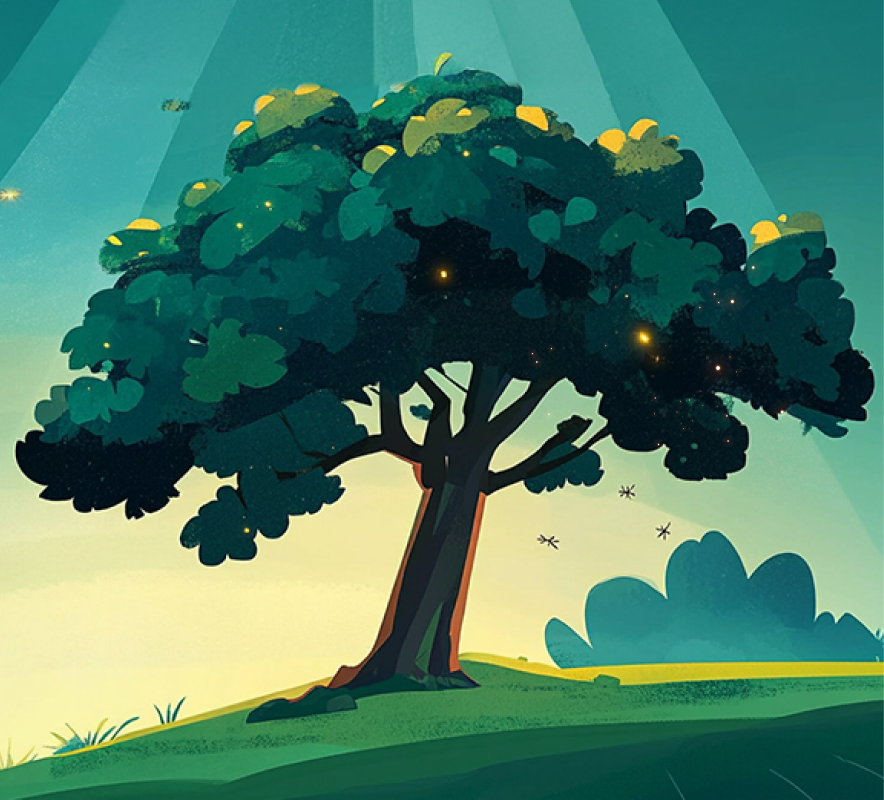Home
>
Rizq in Islam
November 17, 2024
Unlocking rizq in Islam: Powerful duas, surahs, dhikr, and how charity transforms lives
By Yusuf Jaffar
•
3 min read

Rizq, often translated as "sustenance" or "provision," is a deeply spiritual concept in Islam that goes beyond material wealth. It encompasses everything Allah has provided for us, from health and knowledge to friendships and opportunities. Muslims are encouraged to seek rizq through halal means, make dua for increase, and practice gratitude for what they have been given.
At the same time, Islam teaches that sharing our rizq through charity not only blesses others but opens doors to even more abundance in our lives. In this post, we will explore the transformative role of charity, the power of duas and dhikr in unlocking rizq, and key Quranic guidance on sustenance.
How charity unlocks rizq
As a crowdfunding platform, charity and rizq are deeply connected to our mission. One of the core purposes behind creating our platform was our belief that charity holds a profound place in worship and serves as a means to multiply the blessings one receives. In Islam, there is a clear and profound correlation between charity (sadaqah) and the increase in rizq (sustenance).
“The example of those who spend their wealth in the way of Allah is like a seed [of grain]. It grows seven ears; in every ear is a hundred grains. And Allah multiplies [His reward] for whom He wills. And Allah is all-Encompassing and Knowing.” (Surah Al-Baqarah 2:261)
This verse beautifully illustrates how charity is not just a noble act but a profound investment. Just as a single grain can multiply into a bountiful harvest, so too can a small act of giving result in immense blessings and rewards, both spiritually and materially.
Key teachings on charity and rizq:
Charity does not decrease wealth: The Prophet Muhammad (peace be upon him) said, “Charity does not decrease wealth” (Ṣaḥīḥ Muslim 2588). This reassures believers that giving charity will not lead to financial loss but will invite divine blessings (barakah) that protect and increase wealth.
Angels praying for givers: The Prophet (peace be upon him) mentioned that every day two angels descend: one prays for those who give charity, asking Allah to increase their wealth, while the other prays for destruction upon those who withhold it (Ṣaḥīḥ Bukhari, Ṣaḥīḥ Muslim).
Charity protects from calamities: The Prophet (peace be upon him) also said, “Give charity without delay, for it stands in the way of calamity” (Al-Tirmidhi).
It is because of these timeless teachings that we wanted to make it easy for people to give in secret, give around the world, and give whatever amount they can afford. We believe that charity is not just about supporting others but also a profound means for individuals to multiply their own blessings.
The power of duas and dhikr in seeking rizq

Dua as a means of reliance on Allah
The Prophet Muhammad (peace be upon him) taught that making dua for one's needs, including rizq, is essential. It signifies reliance on Allah, acknowledging that He alone controls all provisions. A key hadith states:
“Whoever would like his rizq to be abundant and his lifespan to be extended, let him uphold his ties of kinship” (Ṣaḥīḥ Bukhari, Ṣaḥīḥ Muslim).
Specific duas for rizq:
Allahumma inni as’aluka min fadlika" (O Allah, I ask for Your favor), a concise yet powerful supplication asking for provision from Allah's grace.
From Surah Al-Baqarah (2:201):
"Rabbana aatina fiddunya hasanatan wafil akhirati hasanatan waqina adhabannaar" (Our Lord, give us in this world [that which is] good and in the Hereafter [that which is] good and protect us from the punishment of the Fire).
The dua of Prophet Musa (AS):
"Rabbi inni lima anzalta ilayya min khayrin faqir" (My Lord, indeed I am in need of whatever good You would send down to me) (Quran 28:24).
Dhikr brings barakah and peace:
Dhikr brings blessings (barakah): The Quran states: “Then remember Me; I will remember you” (Quran 2:152). This strengthens the believer's connection with Allah, increasing both spiritual and material sustenance.
Dhikr as a source of peace: “Verily, in the remembrance of Allah do hearts find rest” (Quran 13:28). A peaceful heart is a wealth in itself, enabling focus on earning halal sustenance.
Protection from calamities: Regular dhikr, like saying "Subhanallah" (Glory be to Allah), "Alhamdulillah" (Praise be to Allah), or "Allahu Akbar" (Allah is the Greatest), protects from harm and opens doors to divine assistance.
Surah about rizq
The Quran offers profound guidance on the concept of rizq, emphasizing that Allah is the ultimate provider. These verses not only remind believers to rely on Allah but also highlight the spiritual connection between worship, repentance, and sustenance:
Surah Adh-Dhariyat (51:58):
“Indeed, it is Allah who is the (continual) Provider, the firm possessor of strength.”
This verse highlights Allah as the ultimate provider (Ar-Razzaq), reminding believers to place their trust in Him.
Surah Al-Hajj (22:58):
“And indeed, it is Allah who is the best of providers.”
Allah is described as Khayrur-Raziqeen (the best of providers), affirming that all sustenance, seen and unseen, comes from Him.
Surah Taha (20:132):
“Bid your people to pray and be diligent in (observing) it. We do not ask you to provide. It is We Who provide for you.”
This verse emphasizes worship and righteousness as the keys to guaranteed provisions from Allah.
Surah Nuh (71:10-12):
“Seek forgiveness of your Lord. Indeed, He is ever a Perpetual Forgiver. He will send [rain from] the sky upon you in [continuing] showers and give you increase in wealth and children.”
Seeking forgiveness (istighfar) is directly linked to increased sustenance, including wealth, children, and other blessings.
Surah Al-Ma'ida (5:114):
“O Allah our Lord! Send us from heaven a table set (with viands)... for Thou art the best Sustainer.”
This supplication of Prophet Isa (AS) illustrates Allah’s unmatched generosity in providing sustenance.
Featured fundraisers
Discover 1.5K more
Join our newsletter
Join our community of 700k subscribers
Explore more